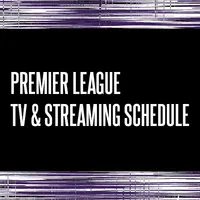Read our Premier League beginner’s guide to the world’s most popular sports league – even more successful and bigger than the NFL.
Premier League Beginner’s Guide
The Premier League (sometimes referred to as the EPL – English Premier League – outside of the United Kingdom) launched in 1992. It quickly grew to the world’s most popular sports league.
Watch the EPL on Fubo:
Our Pick:Includes: Premier League, Liga MX, Ligue 1, + 84 Sports Channels |
 |
Consisting of 20 teams, each club plays every other team twice in a season, one match home and the other one away. Therefore, each team plays 38 matches during the course of the entire season that runs from August through May.
Unlike some other European club leagues, the Premier League has no winter break and continues every week throughout the season. However, FIFA imposes international breaks fore World Cup or continental cup qualifying with national teams. Additionally, these FIFA-mandated breaks last roughly one-and-a-half weeks, with five or six throughout the season.
Popularity
The Premier League has a number of reasons for its popularity. For one, many world-class players come to the league for its competition each week. Then, the international diversity brings in differing play styles for multiple teams. Finally, fans in England and Wales often provide noisy and boisterous crowds.
The Premier League is unpredictable. Relatively speaking, pundits and fans never know where a team will finish. Comparatively, teams in Germany, Spain, Italy and France tend to finish in the top four regularly.
English soccer pyramid
The Premier League teams that finish in the bottom three of the standings each season are relegated to the second tier of English soccer, known as the Championship. The top four teams qualify for the UEFA Champions League, which is the most high-profile club soccer tournament in the world featuring the best teams from Europe competing against each other from the group stages (in September) through to the final in May.
For a more in-depth look at how promotion and relegation works across the soccer world, check out our article on the subject.
Qualification to European competition
The top four teams qualify for the Champions League, although the fourth placed team must compete in the Champions League play-off (beginning in August) to qualify for the group stage. The fifth-placed team in the Premier League automatically qualifies for the UEFA Europa League, and the sixth and seventh-placed teams can also qualify, depending on the winners and runners-up of the two domestic competitions (FA Cup and League Cup); if the winner of the FA Cup qualifies for the Champions League, then that place will go to the runner-up, and if the runner-up is also already qualified, then that place will go to the next-best placed finisher in the Premier League. If the winner of the League Cup has already qualified, that place goes to the next-best placed team in the league.
The UEFA Conference League, the third-tier European competition, can also see an EPL team qualify. The EFL Cup (aka the League Cup, or its current sponsor name Carabao Cup) winner normally is the representative. However, if that club has already qualified to either Champions League or Europa League via another competition, the spot goes to either sixth of seventh place in the EPL. Whether sixth or seventh place gets the Conference League spot further depends on that season’s FA Cup result.
A further place in the UEFA Europa League is also available via the Fair Play initiative. If the Premier League has one of the three highest Fair Play rankings in Europe (based on how few yellow cards or red cards each team receives, as well as the behavior of its supporters), the highest ranked team in the Premier League Fair Play standings that has not already qualified for Europe will automatically qualify for the UEFA Europa League first qualifying round (that typically begins in July).
Other helpful resources:
Premier League TV and Internet schedule.
Ultimate guide to the best soccer movies.
How to watch Premier League without cable.
Browse through these beginners guides to the many of the popular soccer leagues:
Soccer Beginner's guides
• Beginner's guide to soccer rules
• Beginner's guide to Argentine Primera División
• Beginner's guide to Bundesliga
• Beginner's guide to Championship
• Beginner's guide to Champions League
• Beginner's guide to Copa América
• Beginner's guide to English Premier League
• Beginner's guide to Euro 2024
• Beginner's guide to Korea's K League
• Beginner's guide to Women's World Cup
• Beginner's guide to World Cup
Have any questions about the Premier League beginner’s guide? Let us know in the comments section below.














